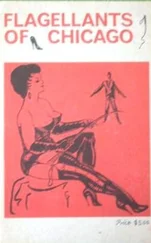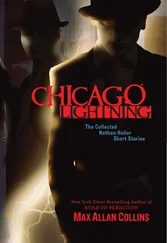THE DISTANCE BETWEEN THE SECOND row, where Dr. Salah was sitting, and the podium at which he was going to deliver his speech was no more than ten steps, but it formed the separating line between two lives: between his sixty-year history and his future, which was being shaped at that very moment. There he was, carrying out the plan, exactly as he had agreed with Karam Doss and Nagi Abd al-Samad. Security asked to preview the speech he was going to give. He gave them a two-line speech in which he glorified the president, which they approved immediately. In the meantime, he had kept in his inside pocket the text of the statement that he was going to deliver in the name of Egyptians. His worst fear was that they might search him as he entered the hall, find the statement, and ruin everything. But it seemed his dignified appearance had reassured the officer, so he did not subject him to any additional procedures. Dr. Salah stood up and slowly approached the podium, his head bowed so that he wouldn’t look at anyone. He first had to make sure that he was fully within the range of the cameras so that he could aim his blow precisely. He was going to read the statement in a strong and clear voice, quickly, so that he could finish it before they prevented him. It was naive to imagine that they’d let him finish. They would be overcome with shock for a few moments, but they would soon come to and move. What were they going to do to him? It was unlikely that they’d shoot him. They would arrest him, beat him up, even muzzle him by force to prevent him from finishing the statement. All of that would expose them even further. Only two steps to go. He was hearing a subdued droning sound in the hall. If he raised his head now, he would see the head of the state faceto-face. What a life-changing moment! He would leave this hall a different human being. He was unafraid. All he feared was not being able to finish delivering the statement. What happened after didn’t worry him. Where had this spirit been? If he had had it thirty years earlier, his life would have changed. Zeinab would not have told him, “I regret to tell you that you’re a coward.” There he was, going the final step, standing in front of the president of the republic, delivering a statement defending Egyptians’ right to democracy and freedom. He was going to do that before the whole world. Cameras were going to beam his picture everywhere. When Nagi offered him the opportunity to read the statement, he felt that fate was providing him with a way out of his suffering. His instantaneous acceptance surprised Nagi himself.
Last night he had said to Zeinab on the telephone, “I’ll prove to you that I am not a coward.” She asked him how and he answered with a proud laugh, “Tomorrow you’ll know. The whole world will know.”
He reached the podium and brought his head close to the microphone. He thought to himself: I am not a coward, Zeinab. You’ll see for yourself. I’ve never been a coward. I left Egypt because it closed her doors in my face. I didn’t run away. I’ll show you now what courage is like. What I am going to do is considered by the jurists as the highest form of jihad: telling the truth to an oppressive ruler’s face. Now he was going to be rid of his ordinary life; he would take it off and discard it as if it were an old, worn-out coat. His name would be written in history and would be passed on from generation to generation: the hero who confronted the tyrant.
He stood erect, adjusted his glasses with his finger, then nervously reached into his shirt pocket and took several folded sheets of paper. He opened them and began to read, his voice coming out tentative and a little raspy, “A statement from Egyptians living in Chicago.” He stopped suddenly, looked at the president sitting on the dais, and saw on his face a sort of welcoming smile. A profound silence fell on the whole place. He seemed somewhat confused as he dried with his handkerchief the copious sweat that had gathered on his forehead. The longer his silence continued, the more pronounced an uneasy hum from the crowd grew. He opened his mouth to go on reading, but suddenly his face changed and he looked upward, as if he had suddenly remembered something he had forgotten. In a very quick movement, he put the papers he had taken out into his jacket and took out of the other pocket a small piece of paper that he spread in front of him and started to read in a shaking voice. “Speaking for myself and on behalf of all Egyptians in Chicago, we welcome you, Mr. President, and thank you from the bottom of our hearts for all the historic achievements you have offered the fatherland. We pledge to you that we will follow your example — that we will continue to love our country and offer her our best, as you have taught us. Long live Egypt and may you live long for Egypt.” When he was finished, there was enthusiastic applause. Then he turned around, going back to his seat in slow, heavy steps.
The receptionist was a beautiful young woman with a smiling, sunny face. As soon as she heard the name Ra’fat Thabit, however, her smile vanished and she bowed her head slowly. She tried to say something appropriate, but she got confused and let out some incomprehensible murmur. She came out from behind the reception desk’s marble counter and, followed by Ra’fat, crossed the hallway then the long corridor. Then she went left and entered another corridor. Her pace was heavy and hesitant at the beginning, and then it became regular and acquired a dignified rhythm fraught with meaning. Finally they reached a room. The receptionist held the doorknob and brought her head closer, as if pricking up her ears. Then she tapped with her fingers and a gruff voice came from inside. She opened the door slowly and motioned to Dr. Ra’fat, and he went in with her. The room was of a medium size, quiet and clean. To the right, there was a window that let in the daylight. The doctor was in his forties, bald, and wearing a white coat and glasses with silver frames. He stood in silence next to the bed. Ra’fat saw Sarah stretched out in the same clothes she had on the last time he saw her: the worn-out blue jeans and the yellow T-shirt with a dirty collar. Her face was totally calm, her eyes closed, and her lips relaxed but not open. The doctor said in a deep voice, whose reverberations echoed in the silence, “Last night at about three a.m. a car dropped her at the door of the hospital and sped away. We did all we could to save her, but the overdose caused a sharp drop in brain function. Please accept my sincere condolences.”
* * *
The demonstration was over. We walked to the car: Karam Doss, John Graham, and me. I left the front seat for Graham and rode in the back. We remained silent for a while. We were dejected. Karam suggested we have a drink. Graham murmured in agreement. I remained silent. We went to our favorite place on Rush Street. With drinks we warmed up. Karam Doss said, “I don’t understand Dr. Salah. Why did he do that? He could’ve refused to read the statement from the beginning. He ruined everything.”
I was bitter over what had happened, so I said, “You have no idea how angry I am with this man. I don’t know how I’ll have any dealings with him in the department after this.” We fell silent again, then Karam said, “I think what Salah has done was totally deliberate. He conspired with Safwat Shakir to sabotage the whole thing.”
I didn’t comment. My disappointment was mixed with a feeling of guilt. It was I who agreed with Salah that he would deliver the statement. I remembered how he showed an enthusiasm that surprised me when I offered him the task. I asked Karam, still unable to think clearly, “You think he works for Security?”
“Of course.”
“No,” said Graham. He took a sip from his drink and added, “I think the man really wanted to deliver the statement but was frightened at the last moment.”
Читать дальше
Конец ознакомительного отрывка
Купить книгу












